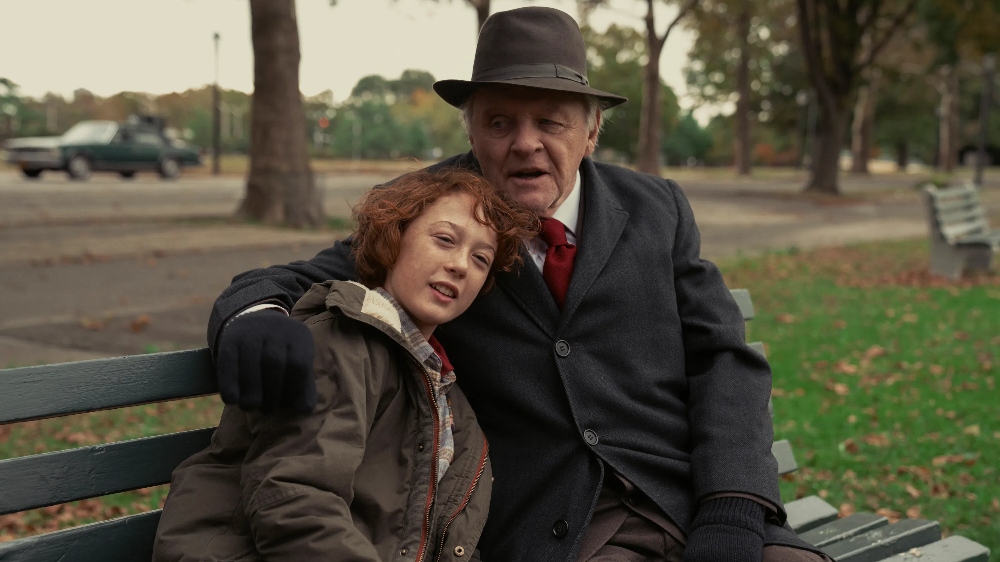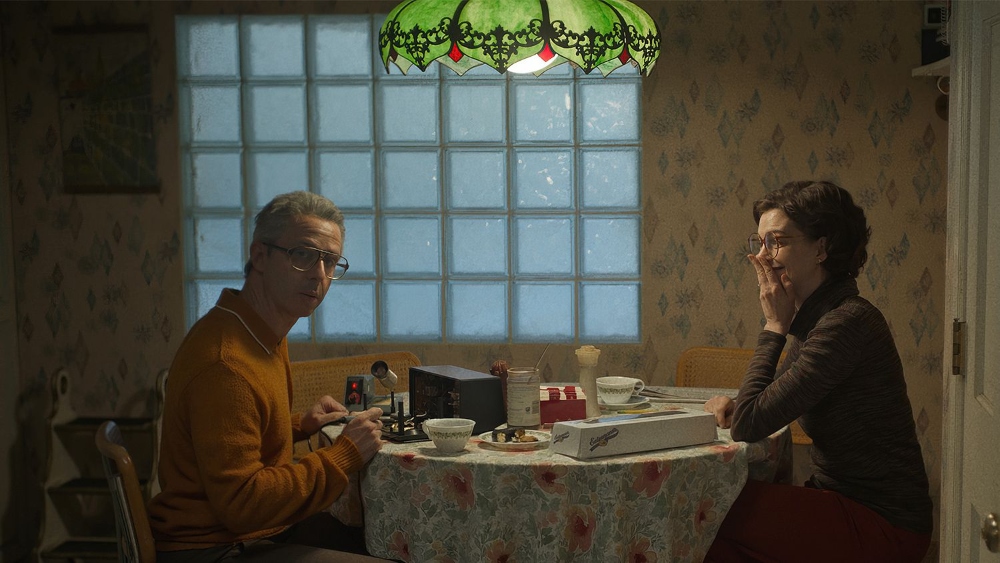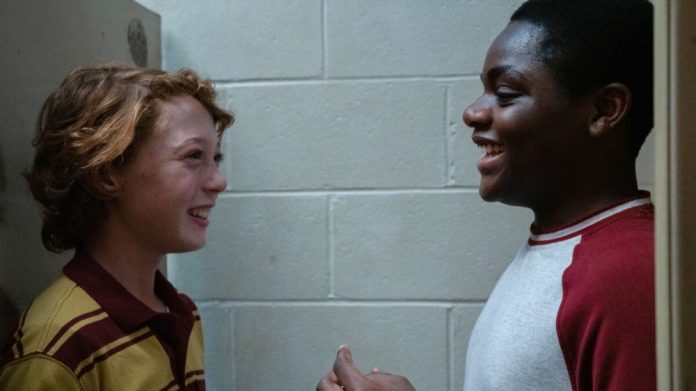James Gray is one of the great American filmmakers of his generation, worthy of comparison to none other than Francis Ford Coppola in how dexterously he explores the psychic burden and near-mythic totality of one’s blood ties. Predominantly centering his narratives on fathers and sons who grapple valiantly with all the forces that have formed them, Gray establishes richly textured and overcast worlds around these characters, shading their struggles with an air of tragic inevitability while placing their stories in a more potently sweeping dramatic context.
Attuned to classical dimensions of opera, Shakespearean drama, and Greek tragedy, Gray’s films have long presented his native New York as both setting and subject. In his debut feature Little Odessa and consequent crime epics The Yards and We Own the Night, Gray focused on tight-knit New York families riven by cycles of power, corruption, and neglect — ones set in motion long ago and passed down through generations as if sacred. The Russian-Jewish neighborhood of Brighton Beach served as a forlorn and culturally complex backdrop to Two Lovers, the romantic drama he made next, while The Immigrant cast its gaze back through time and memory to evoke New York in the early 1920s, mythologizing it in smoke and gold while rendering the emotional lives of characters in thrall to its expanse with a fraught and fiercely intimate melodicism.
In the assimilated New York of Gray’s cinema, a place populated by lost souls and downtrodden dreamers, the long shadow of systemic oppression has never existed alongside tribal obligation so much as compounded it. Bound up in familial notions of duty and sacrifice, loyalty and inheritance, his characters are trapped by where they came from and then ensnared twofold, by larger-scale systems of privilege and inequality that brutally silo and structure the city’s masses. The brooding, fatalistic tone of Gray’s films — conjured as well through chiaroscuro lighting and claustrophobic sound design — stems from their characters’ inevitable confrontation with systems both personal and political, and the sense of powerlessness they’re left with.
Armageddon Time, Gray’s latest film and his most personal to date, returns to the ’80s Queens milieu where he was raised, excavating from the filmmaker’s past a powerfully observed and deceptively wide-reaching chronicle of the American moral crisis. It’s in every sense a film aligned with his past ones, but at the same time, it feels like a culmination of Gray’s preoccupations as a filmmaker — perhaps more accurately a reckoning, a mea culpa.
The filmmaker’s previous two films, The Lost City of Z and Ad Astra, took him to the Amazon and outer space, two far-flung locales in which tensions between fathers and sons assumed grandiose existential portent, and so it’s easy to view Armageddon Time as a smaller-scale endeavor, a homecoming simply for reunion’s sake. But in its willingness to exchange emotional distance for a painful reckoning with Gray’s own past, it just might be the film he’s spent his entire career preparing to make.

Set in 1980, at the precipice of Reagan’s America, as the then-presidential candidate warned of “Armageddon” ahead for a generation (the title also references a dub reggae cover by The Clash, released one year prior), the film sets us down in Queens, with a sixth-grader named Paul Graff (Michael Banks Repeta), who dreams of becoming an artist. That’s partly what compels him to draw a caricature of his teacher’s head on a turkey’s body; said teacher, Mr. Turkeltaub (Andrew Polk), can’t find the humor in this and disciplines Paul, along with his classmate Johnny (Jaylin Webb), by making them stand next to the blackboard. Naturally, Paul and Johnny — the public-school classroom’s lone Black student — become friends, especially once “Turkey” brands them both class delinquents, and they’re soon hanging out around school, discussing adolescent interests (Paul loves the Beatles, Johnny’s into the Sugarhill Gang) with all the cheerful obliviousness attendant to that age.
Despite cluelessly telling Johnny that his family’s “super-rich,” Paul is from a working-class Jewish immigrant family in Queens; his emotionally combustible father, Irving (Jeremy Strong), works as a boiler repairman, while his mother, Esther (Anne Hathaway), is a harangued home-economics teacher and PTA president, with plans to run for school board. Her parents (Anthony Hopkins and Tovah Feldshuh), who live with them, got out of Europe before the Holocaust but remain haunted by the ordeal, never more than when they’re pressuring Paul and his brother to work hard and get further ahead than their parents could.
Paul’s too young to grasp his family’s ambitions for him, but his friendship with Johnny starts to change that, around the time he grows aware of inequalities in their social, economic, and family situations. After the two get in bigger trouble at school, Paul is afforded a way out, while Johnny is not. Too familiar with socioeconomic layers of privilege and racism that allow only some to succeed, and only at the expense of others, Paul’s parents place him in private school — a decision co-signed by his grandparents. There, he’s given another education in the importance of family history and tribal identity, courtesy of two of the new school’s benefactors: Fred Trump (John Diehl, suitably decrepit as old money incarnate) and his daughter, Maryanne Trump Barry (Jessica Chastain), who at once congratulates the pupils for earning their success and insists that they can never take handouts.
Paul navigates the hypocrisies of this upper echelon to the best of his abilities, but he’s unsettled by his uniformly white classmates, who eagerly lob racial epithets, and perplexed by their clear adulation for Reagan, whom Irving dismisses as “a schmuck.” At home, Paul finds little respite from the confusion in which he’s submerged. “You have to say something,” his tender-hearted grandfather, Aaron (Hopkins) tells him, instructing Paul to be a “mensch” and stand up to racist classmates, even as he warns Paul to “remember his past” and be mindful that those same bullies might direct their ire at Jews as well.

Irving and Esther, both aggrieved in their own ways, are less helpful, especially as the film refocuses on Paul and Johnny’s friendship in a third act that finds the pair’s idealistic misadventures turning dangerous and, suddenly, tragic. Straining to offer wisdom after one escapade leads to Paul narrowly avoiding grave consequences while Johnny incurs them, Irving can only urge him to keep moving. “Be thankful when you get a leg up,” he says, discussing the “raw deal” that some people get more than others. “You make the most of your break and do not look back.”
Gray rebuilt his own family home on a New Jersey soundstage, relying on thousands of slide photographs to accurately recreate its interiors; this fastidiousness, coupled with the autobiographical nature of the story, casts Armageddon Time as a memory play and in part accounts for its narrative’s painful ring truth. Cinematographer Darius Khondji’s darkened color palette and Happy Massee’s impressively well-worn production design, too, locate this historical moment without trafficking in easy nostalgia for it, and the way these actors disappear into their roles — Hathaway especially, who captures Esther’s warmth and contempt in one dazzlingly strained smile — is a boon to Gray’s careful scripting of them as flawed but well-meaning individuals, navigating their lots in life at a fractious point in American culture.
Beyond truth, though, Armageddon Time is suffused with a sense of survivor’s guilt, as an individual experience and inherited cultural weight, that we can take as Gray’s own. In past films, the director has explored the moral desperation of Jewish families intent on preserving what’s theirs in a world that seems dead-set on taking it from them; here, he mulls the ways that desperation at once opened his eyes to his own peril and left him blind to that of others. “The game is rigged,” Hopkins’ Aaron tells Paul at one point, wearily.
But to play the game is to perpetuate it, and the slow-dawning dread of Armageddon Time can be found in the accumulation of sequences where Paul begins to sense his quiet complicity, the insulating effect of his privilege, if only in hindsight. Much of the film suggests, if not outright recrimination, at least a refusal on Gray’s part to revisit his childhood through rose-tinted glasses. Instead, Armageddon Time finds him contemplating his own end of innocence without sentimentalizing it — expressing, through the language of film, what he wishes now he’d known to say back then, before it was too late.
This is a devastating story of New York from a filmmaker who understands the city’s tragedy — its broken promises, its fear, its cruelty — because he’s from there and still remembers, with thunderous clarity, the first time he saw its true face.
Grade: A
Armageddon Time is now playing in theaters nationwide.



